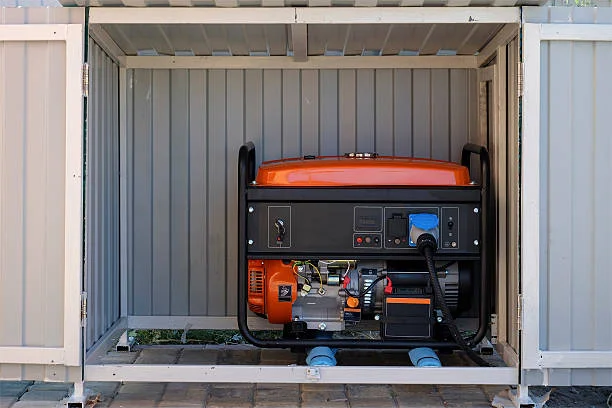Power outages can strike unexpectedly, leaving households without electricity for hours or days. The impact can be significant, from spoiled food and disrupted routines to more serious risks like loss of heating, cooling, or medical device support. A home backup generator provides a reliable safeguard, ensuring that essential systems remain functional when the grid goes down. But with a wide range of options available, selecting the right generator requires more than a quick purchase—it involves understanding your household’s energy demands, exploring different system types, and evaluating installation and maintenance needs. Following a few essential steps, homeowners can confidently choose a backup generator that delivers both peace of mind and long-term value.
You’ve started the journey—our Related Posts take you even further ahead!
Why Reliable Backup Power Matters
The modern home relies on reliable electricity. Outages can threaten safety, security, and comfort by causing food spoilage, disrupting medical equipment, and cutting off communication. Events like hurricanes and wildfires increase the need for backup solutions. A dependable generator keeps your family safe and appliances running when the grid fails. For those seeking a premium level of confidence and reliability, Generac Generators have become a trusted choice nationwide, offering robust systems to safeguard your home’s power supply.
Having a home backup generator doesn’t just maintain daily routines—it forms a vital layer of resilience against the unexpected. Many municipalities across the U.S. have seen notable increases in the duration and frequency of power disruptions, a trend exacerbated by aging infrastructure and climate-induced phenomena. These outages often occur at the worst possible times, sometimes lasting for days, and can leave you struggling to stay comfortable and safe. As these challenges persist, investing in the right generator is no longer a luxury but a wise and practical decision that pays dividends in peace of mind. By proactively preparing for grid failures, you can protect your belongings, support your family’s health, and preserve your quality of life through even the most challenging outages.
Common Types Of Home Generators
Before choosing a generator, understand the types available, as each serves different needs. Portable generators are budget-friendly, providing temporary power, but require manual refueling and outdoor use due to exhaust. They have lower wattage and can’t run many appliances simultaneously. Standby generators are stationary, automatically activate during outages, and connect directly to your home’s electrical system, offering whole-home power. Inverter generators are quiet and efficient, suitable for sensitive electronics or limited needs, and can adjust engine speed based on demand. Your choice depends on your power needs, outage frequency, and desired convenience during emergencies.
Assessing Your Home’s Power Needs
Determining your power needs is key to selecting a backup generator for your home. List essential appliances and systems during an outage—like refrigerators, freezers, sump pumps, lighting, HVAC, home office gadgets, and medical devices. Check each wattage rating on labels or manuals and sum these for your base load. Remember, some appliances, such as refrigerators and air conditioners, have surge wattage that exceeds their running wattage. Ignoring surge wattage can lead to underpowered generators. To prevent under-sizing, compare your estimates with reputable guides or resources. These tools and a licensed electrician can help refine your calculations, ensuring your generator meets your household’s needs now and as they change.
Fuel Choices: Pros And Cons
Choosing the right generator involves evaluating fuel types and their practicality for your household. Gasoline generators are common, especially portable ones, allowing easy refueling with proper containers. However, gasoline has a short shelf life and may be unavailable during extended emergencies when pumps lack electricity. Diesel models offer better efficiency and runtime but are larger, noisier, and need routine fuel maintenance to prevent degradation. Standby and large portable units often use propane or natural gas, known for clean burning, lower emissions, and support for continuous power via utility lines or large tanks. Propane has an indefinite shelf life and performs well in cold weather. Natural gas, supplied directly from municipal lines, eliminates refueling hassle. Consider local availability and infrastructure, especially in regions prone to supply disruptions. The reliability and long runtime of natural gas and propane make them ideal for homeowners seeking resilience in all seasons.
Professional Installation Matters
While some generator models are promoted as suitable for do-it-yourself installation, the complexity and risks involved in connecting a standby generator to your home’s electrical system demand professional expertise. Licensed electricians possess the skills and knowledge to ensure compliance with local building codes, address safety protocols, and install automatic transfer switches that effectively manage the transition from grid power to generator power. Attempting to install a generator without the necessary expertise can endanger your property and personal safety due to risks such as electrical shock, fire, or backfeeding, which can also threaten utility workers. Upfront investment in professional installation is justified in safeguarding your property and preserving your generator’s warranty and operational longevity. This professional expertise provides essential reliability and enduring peace of mind for communities where outages are frequent.
Maintaining Your Generator For Longevity
Generators—like all complex mechanical equipment—require periodic upkeep to deliver optimal performance when you need them most. Establish a maintenance schedule that includes oil and filter changes, fuel system inspections, battery checks, spark plug replacement, and routine operational testing under load conditions. Keeping your generator in top condition ensures it starts reliably and runs efficiently during any outage. Many modern generator models now feature remote diagnostics, Wi-Fi connectivity, and digital monitoring, providing proactive alerts for required maintenance or emerging malfunctions before they become critical problems. Following manufacturer-recommended service intervals significantly extends your system’s lifespan and ensures efficient operation during emergencies. Industry data from sources recommend regular inspection and monthly or quarterly exercising of generators as the most effective strategy to avoid untimely breakdowns and unexpected repair costs.
Eco-Friendly Generator Innovations
As environmental responsibility becomes an ever-growing household priority, generator manufacturers have responded with cleaner, quieter, and more energy-efficient models. Hybrid generators and those capable of running on alternative fuels like propane, natural gas, or bi-fuels are now engineered for reduced carbon emissions without compromising reliable power output. In addition, inverter technologies help minimize noise and fuel consumption, making backup generators more appealing for densely populated or environmentally conscious neighborhoods. Some local and state governments and utility companies incentivize the adoption of eco-friendly generator systems through rebates, tax credits, and energy efficiency programs, making selection and installation more affordable. Homeowners today have a broader selection of options that combine robust performance with lower environmental footprint, ensuring that sustainable, reliable backup power is an attainable standard for most modern homes.
Final Thoughts: Balancing Needs And Peace Of Mind
Navigating the purchase and installation of a home backup generator involves carefully weighing your unique household needs, fuel choices, and budget in conjunction with recent innovations in efficiency and environmental stewardship. Researching generator types, working closely with experienced professionals for selection and installation, and adhering to robust maintenance routines can transform your backup system from a costly amenity into a necessity. As ongoing reports and research highlight the increasing challenge of grid instability, homeowners have never had a better time to adopt a proactive approach. Investing in proven solutions and maintaining an informed, prepared approach will secure lasting peace of mind and practical resilience for your home and loved ones, even in uncertain times.
Don’t stop discovering—Explore More insights that matter to your journey.







